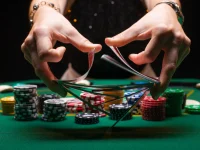The Role of Empathy in Poker: Understanding Opponents’ Perspectives

Empathy can help ease conflict and guide decision-making in social situations, while increasing understanding and appreciation for differences in others.
But empathy isn’t an inborn trait – it can be learned with training and practice, helping develop observational and emotional intelligence–both important skills in poker as well as in life.
Understanding Your Opponents’ Perspectives
Poker isn’t simply a card game; it’s a sophisticated battle of intellect, strategy and psychology. To succeed at poker requires empathy; that means understanding another person’s feelings as if you were experiencing them yourself.
Empathy has two components, affective and cognitive. Affective empathy allows you to feel what others are experiencing – such as sadness from a friend going through hard times or anger from your spouse when your joke hurt their feelings.
Cognitive empathy refers to your ability to recognize and comprehend another’s perspective, thoughts, and emotions. This skill enables many players to perform so well against opponents; they understand each person’s motives and emotional states better than most can. Cognitive empathy can reduce conflict and promote positive relationships at the table while simultaneously helping your life off it – one study even revealed that people with higher empathy levels experience less burnout at work!
Observing Tells
Poker is more than cards and odds; it’s also about people. Paying close attention to how others feel can help you predict their actions more accurately and make wise decisions; for instance, if someone exhibits signs of anger or frustration you can assume they’re likely going to fold their hand soon.
Establishing a keen awareness for social cues is one of the cornerstones of poker and life in general. Being sensitive allows you to interpret these tells more accurately; for example, fidgeting or looking away frequently could indicate someone is hiding a weak hand from you.
Employing empathy at the poker table can help reduce conflict and foster stronger relationships between opponents, while also helping you avoid becoming overly critical or cruel towards them; an issue often seen among those lacking empathy. For more on this subject, BetterHelp’s online therapy service matches you up with licensed counselors who can assist in improving both your poker game and navigating life’s obstacles.
Reading Social Cues
Learning to interpret nonverbal cues at the poker table can be invaluable. Subtle shifts in posture, gestures and facial expressions can give away one’s confidence or uncertainty – for instance a player leaning in may be bluffing, while slouching implies they hold strong hands. Furthermore, how a player stacks his or her chips can reveal much: are they deliberate and cautious or carelessly tossing them around?
Empathic communication allows you to understand your opponents’ strategies better and communicate efficiently, helping to foster stronger relationships, reduce conflicts and foster an environment in which all players can flourish.
Empathy helps develop your ability to regulate emotions, which can be particularly useful at the poker table. For instance, practicing self-regulation techniques before an important hand can help calm you down and increase your odds of success. High intrinsic motivation also encourages perseverance so that goals can be reached more easily.
Managing Emotions
Empathy is one of the keys to becoming a master poker player. By understanding your opponents beyond just their cards and math, empathy allows you to better comprehend who they are beyond just numbers and tables. Furthermore, using empathy improves emotional control and self-awareness.
When someone shares their worst downswing with you, you might experience similar emotions as them and find that their frustration with poker echoes within yourself.
Global Empathy or Emotion Contagion, is an integral component of EI and can be measured using questionnaires such as Empathy Quotient (Baron-Cohen and Wheelwright 2004).
Hellmuth makes an important point about remembering to keep emotions out of the game; however, they should not become your primary focus at the poker table. Letting one bad hand ruin your entire session means missing out on other opportunities that arise throughout your session.







